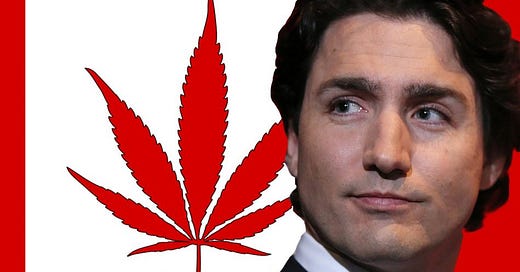The Trudeau Resignation: Now What For Canadian Cannabis?
Four hundred years before Seinfeld, there was Shakespeare’s play, Much Ado About Nothing. It is literally a comedic play about nothing. The play’s title is a metaphor for what will happen to the Canadian cannabis sector after Prime Minister’s Trudeau’s resignation and the arrival of a new PM.
This post could end right here. Based on industry sentiments, however, my conclusion may not be the commonly-held view among weed firms.
For the record, JT resigned from the leadership of the Liberal party but remains the PM till at least least March 2025. It is unlikely we will see a new PM in office – of any party – till at least June 2025.
The absence of meaningful tax and regulatory improvements reflect 5 fundamental realities about today:
1. Politics is everything
Cannabis reform is not an important issue for voters compared to the economy, threatened US tariffs, housing, and taxes. Politicians will focus on electability in 2025.
And for many the cannabis file has been wrapped in a bow. Legalization is 6+ years old, prices are down, and the world didn’t come to an end.
2. The other priorities are unique and critical
For example, President Elect Trump’s threatened 25% tariff on Canadian exports requires a lot of government attention and will: 77% of Canadian exports head south. Since LPs can’t export weed to the US, they don’t have a dog in this fight (i.e. huge motivation or stakes).
3. “Golden Goose” excise taxes
Despite choking industry profits, excise taxes are a multi-billion dollar source of revenue to a government with a huge yearly budget deficit. Furthermore, there will be no strategic votes to be captured by reducing ‘sin taxes’ applied to (perceived) fat cat, poorly run LPs.
4. Industry lobbying is weak
Our industry associations are fragmented, underrepresented, and underfunded. They don’t have clout, dollars or ability to quickly mobilize voters or influence regulators.
5. Inertia
In periods of lame duck governments or political instability, bureaucrats tend to hibernate and wait for new governing parties to emerge.
Fact is, the Feds are quite happy with the growing consolidation through any means – including bankruptcy. Canadian governments typically like oligopolies because they are easier to tax and regulate.
Some modest regulatory changes in areas like licensing, personnel and packaging requirements could pass in 2025. They are in the bureaucratic queue and could be passed by fiat. I am wishful but hope is not a strategy.
It’s not fun being a Cassandra but LPs should not be under any illusions about the current state and the prospects of meaningful change with another PM.
#canada #trudeau #regulations #tariffs #LPS


